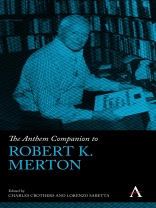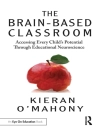Robert K. Merton’s sociological work spans several decades: 1920s (childhood), 1930s (anomie, science, unanticipated), 1940s (housing studies, mass communications, structural-functional analysis, professions, focus groups), 1950s (reference groups), 1960s (ambivalence) and later decades (structural analysis, sociological semantics, cultural sociology). He particularly contributed to sociology during a period when several specialties were being set up and yet his work spans both general and specialist sociologies. He is recognized as the father of anomie/strain theory, focus groups, sociology of science, role set theory, analytical sociology, structural-functional analysis, ambivalence studies and sociological semantics, but always endeavoured to keep the multifarious threads of sociology together. Merton stood at the junction of many other crossroads: classical and modern sociology; American and European sociology; theory and research; philosophy of social science and applied sociology; pure academic sociology and applied sociology; cognitive and social; social sciences and humanities; social sciences and science. Yet the different components of RKM’s work relate to each other. RKM had a major effect on the baby boomer generation of sociology who joined the ranks of sociology at a time of great expansion of university positions across many developed countries. Other generations of sociologists so far less exposed to his work should gain much from consideration of the essays in this volume.
Mục lục
List of Figures and Tables; Chapter One Introduction: Merton’s Self-Exemplifying Classical Sociological Contributions; Charles Crothers, Lorenzo Sabetta, and Lawrence Stern; Chapter Two Skeptical Faith, Left Politics, and the Making of Young Robert K. Merton; Peter Simonson, Chapter Three Theorist’s Progress: Young Robert K. Merton, 1941–1949; Kenneth Fox, Chapter Four Taking a Seminar with Merton; Richard Swedberg, Chapter Five The Development of Mertonian Status-and-Role Theory; Charles Crothers, Chapter Six Theory as an Option or Theory as a Must? The Bearing of Methodological Choices on the Role of Sociological Theory; Antonio Fasanella and Lorenzo Sabetta, Chapter Seven “Interviews of a Special Type”: Robert K. Merton and Codification of the Focused Interview; Raymond M. Lee, Chapter Eight Science as a Culture; Eric Malczewski, Chapter Nine “Providing Puzzles”: Science as Norms and Values; Michel Dubois, Chapter Ten A Mertonian Breviary for Cultural Sociologists; Christian Fleck, Chapter Eleven The Unpublished Robert K Merton; Harriet Zuckerman, Author Biographies; Index
Giới thiệu về tác giả
Charles Crothers is Emeritus Professor of Sociology at Auckland University of Technology, New Zealand. He taught previously at Universities of Auckland, Wellington, and Natal.
Lorenzo Sabetta is a postdoctoral researcher at Sapienza University of Rome and an adjunct professor of sociology at LUISS University.












